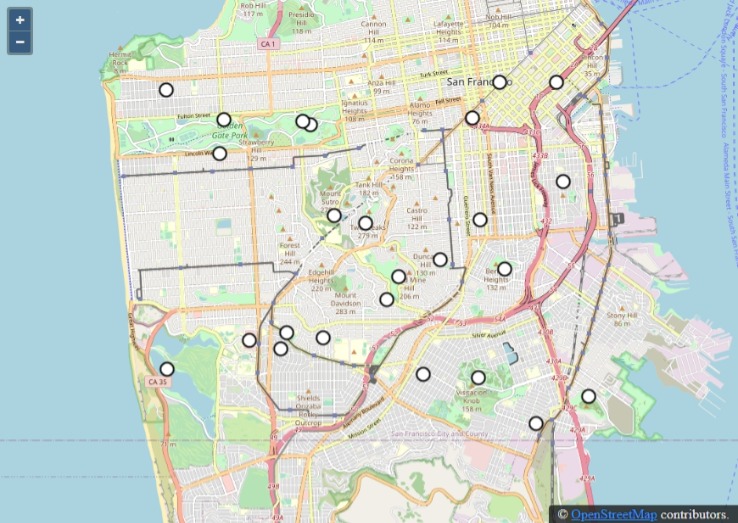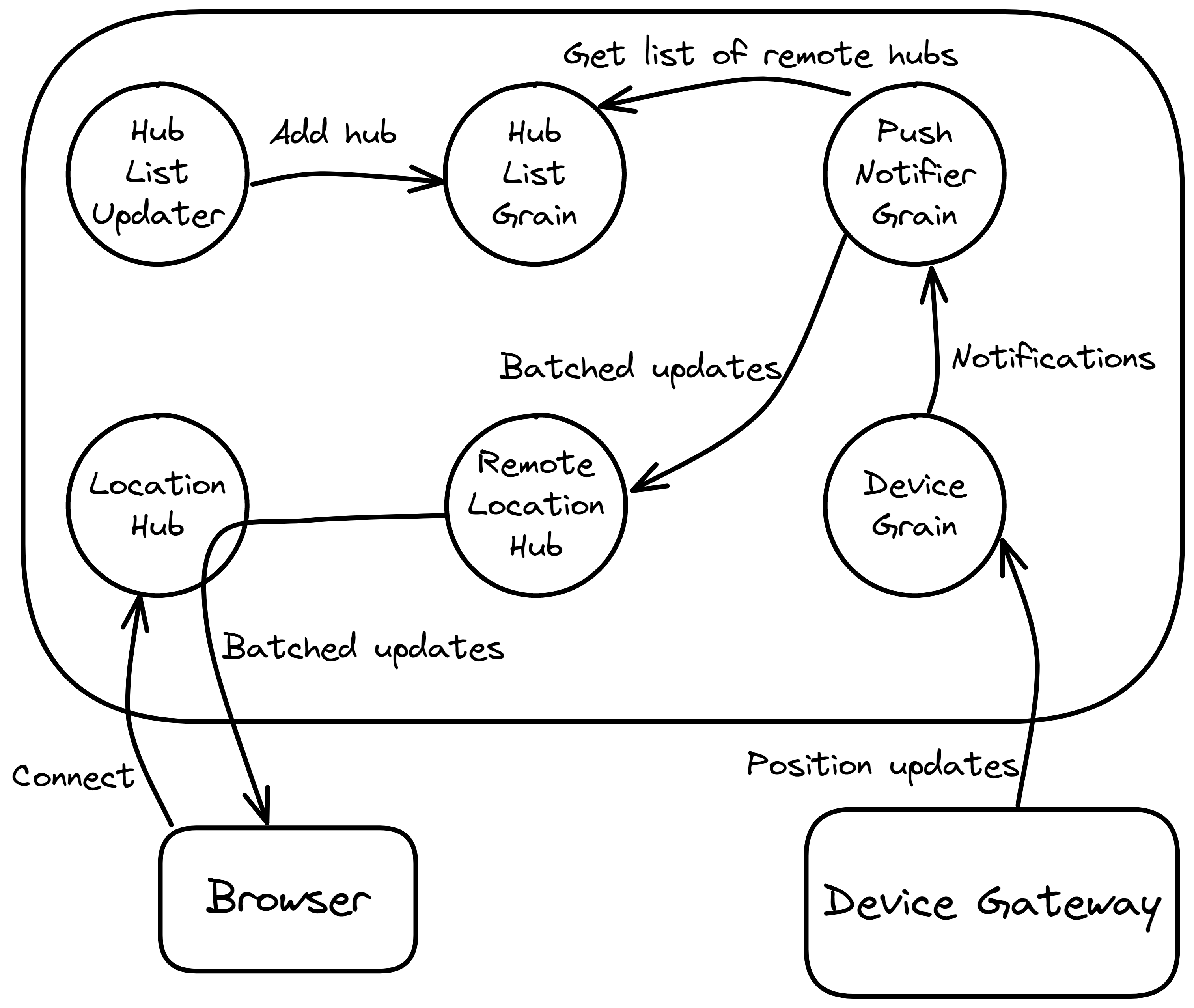Orleans GPS device tracker sample
This sample demonstrates a service for tracking GPS-equipped IoT devices on a map. Device locations are updated in near-real-time using SignalR and hence this sample demonstrates one approach to integrating Orleans with SignalR. The device updates originate from a device gateway, which is implemented using a separate process that connects to the main service and simulates several devices moving in a pseudorandom fashion around an area of San Francisco.

Data flows around the system as follows:
- A device gateway sends periodic location updates to a per-device
DeviceGrain - The
DeviceGrainupdates a singletonPushNotifierGrainwith its location - The
PushNotifierGraincollects these updates into batches and pushes them toIRemoteLocationHubinstances which it discovers by periodically polling the singletonHubListGrain HubListGrainmaintains a list containing anIRemoteLocationHubreference for each host which is connected to the Orleans cluster- Each host has a
HubListUpdaterinstance, which implementsBackgroundServiceand periodically updatesHubListGrainwith its localIRemoteLocationHubreference. - The
RemoteLocationHubclass which implementsIRemoteLocationHubhas an instance ofIHubContext<LocationHub>injected into its constructor. This allows it to send messages to the Web clients which have connected to theLocationHub.
The following diagram is a representation of the above description:

The following is an example of how this might look with multiple hosts and many browsers. Note that the PushNotifierGrain and HubListGrain are singletons and therefore there is one instance of each of those grains shared by the cluster. Singleton grains are a pattern in Orleans whereby only a single grain of a given type is accessed, for example by always calling the instance with a key 0 or Guid.Empty or some other fixed value, depending on if the grain is an IGrainWithIntegerKey or IGrainWithGuidKey. For example, each DeviceGrain gets an instance of the IPushNotifierGrain with id 0:
var notifier = GrainFactory.GetGrain<IPushNotifierGrain>(0);

Sample prerequisites
This sample is written in C# and targets .NET 8.0. It requires the .NET 8.0 SDK or later.
Building the sample
To download and run the sample, follow these steps:
- Download and unzip the sample.
- In Visual Studio (2022 or later):
- On the menu bar, choose File > Open > Project/Solution.
- Navigate to the folder that holds the unzipped sample code, and open the C# project (.csproj) file.
- Choose the F5 key to run with debugging, or Ctrl+F5 keys to run the project without debugging.
- From the command line:
- Navigate to the folder that holds the unzipped sample code.
- At the command line, type
dotnet run.
Open three terminal windows. In the first terminal window, run the following at the command prompt:
dotnet run --project GPSTracker.Service
In the second terminal, launch another instance of the host, specifying that it's the second host by passing an InstanceId value as follows:
dotnet run --project GPSTracker.Service -- --InstanceId 1
Now open a web browser to http://localhost:5001/index.html. At this point, there will be no points moving around the map.
In the third terminal window, run the following at the command prompt to begin simulating devices:
dotnet run --project GPSTracker.FakeDeviceGateway
Dots will appear on the map in the Web browser and begin moving randomly around the area.
Orleans observability
If you're interested in observability, this sample includes some optional logging, metrics, and distributed tracing.
docker run -p 9090:9090 -v ..\dotnet\samples\GPSTracker\prometheus.yml:/etc/prometheus/prometheus.yml prom/prometheus
docker run -d --name jaeger -e COLLECTOR_ZIPKIN_HOST_PORT=:9411 -p 5775:5775/udp -p 6831:6831/udp -p 6832:6832/udp -p 5778:5778 -p 16686:16686 -p 14268:14268 -p 14250:14250 -p 9411:9411 jaegertracing/all-in-one:1.22
OR zipkin:
docker run -p 9411:9411 openzipkin/zipkin